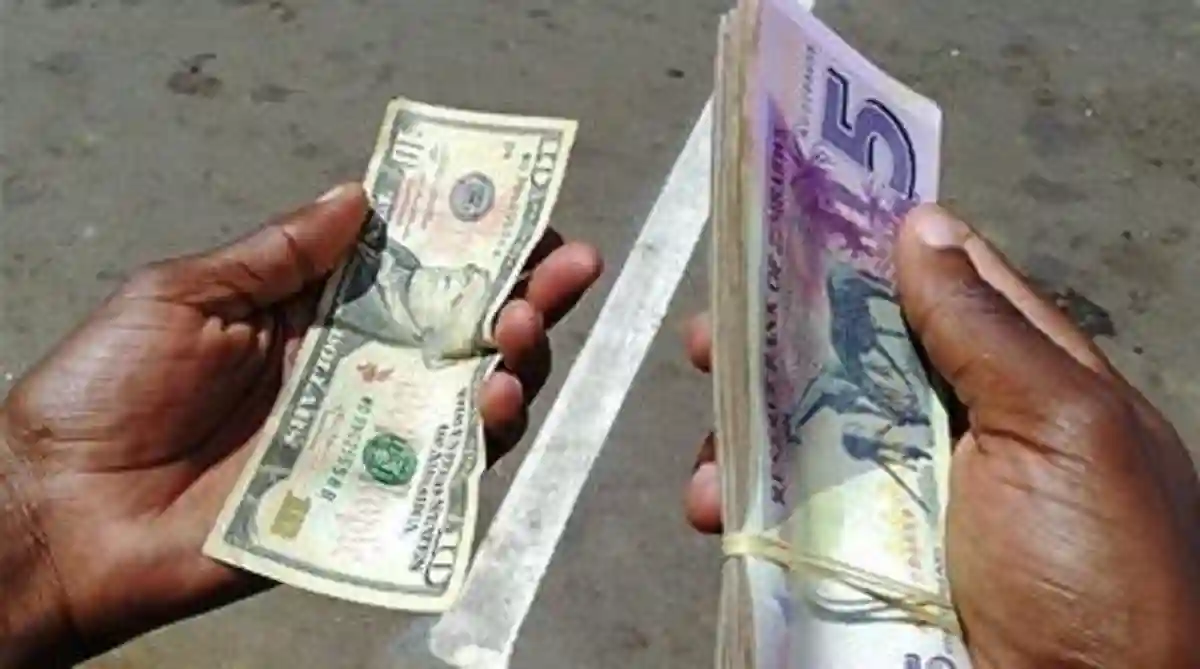A 31-year-old Harare man who was arrested during the ongoing blitz against illegal money changers has challenged his prosecution arguing that no offence was committed as the US dollar is legal tender in Zimbabwe.
According to ZimLive, Albert Dzikamai Chekure, a father of two, was milling around at the corner of Angwa Street and Nelson Mandela Avenue in Harare on April 18 when he was approached by an undercover female police detective who wanted mobile phone airtime for ZiG130, Zimbabwe’s new currency, in exchange for US$10.
He used his phone to purchase airtime from his bank and received a US$10 note from the police officer.
Chekure, who is employed by the Harare City Council as a meter reader, was promptly arrested and charged with the crime of contravening exchange control regulations which prohibit the purchasing or selling of foreign currency without approval.
He is now among over 400 people held without bail in prisons across the country for the same crime after bail was denied by Harare magistrate Ethel Chichera.
Chekure appealed for bail at the High Court after his initial bail request was turned down by the magistrate who ruled that he faces a very serious offence and the possibility of a lengthy custodial sentence.
Former Finance Minister Tendai Biti, a human rights lawyer, has taken up Chekure’s appeal at the High Court.
Chekure argues that he and hundreds of others are being held on an invalid charge. He maintains that the United States dollar is legal tender in Zimbabwe until 2030 and therefore cannot be regarded as foreign currency.
In the bail application filed on May 16, Biti argues that Chekure should not have been denied bail as the charge is “non-existent.
Biti, in a 37-page court application, said foreign currency means a legal tender of another country and USD is a legal tender in Zimbabwe so no offence was committed. He said:
Put in simple terms, foreign currency simply refers to legal tender of another country. Thus, it is unlawful for any Zimbabwean to transact and deal in foreign currency defined to mean the legal tender of another country without exchange approval.
However, the US dollar that the appellant (Chekure) dealt with is not a foreign currency in Zimbabwe rather it is legal tender in Zimbabwe…
Once it is accepted that the US dollar is a currency and is legal tender in Zimbabwe, it is not foreign currency for the purposes of use in Zimbabwe by way of Section 44A of the Reserve Bank Act as read together with Section 2 of the Exchange Control Regulations.
Biti submitted that innocent citizens are being criminalised as a result of the mismanagement and mishandling of the economy by the authorities. He said:
Chekure is fully and gainfully employed at the City of Harare… his entire salary is paid in RTGS or ZiG yet his obligations are monetised in US dollars.
For instance, he rents a house in Glenview 7 where he has to pay rent in the sum of US$ 120.00.
The school fees of his child are required in US dollars.
He does not own a car and riding an omnibus to and from home requires payment in US dollars in the sum of US$ 3.00 per day.
The accused therefore transacted to obtain US dollars for his survival.
The State and the country’s laws are thus criminalising the innocent activities of the accused and millions of other Zimbabweans who are in exactly his position.
Biti also argued that USD was not readily available in banks, with only a few privileged powerful people able to purchase US dollars at the Dutch Auction system until recently. He said:
There was no provision for ordinary citizens such as the appellant to purchase US dollars.
It is thus ridiculous that the Government creates a situation where the economy is dollarized, businesses and the Government itself demand payment in US dollars yet citizens are paid in a local currency that Government itself and businesses refuse.
The appellant is not a criminal and should therefore be released on bail.
More: Pindula News

